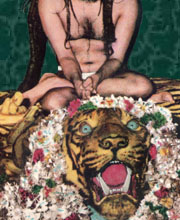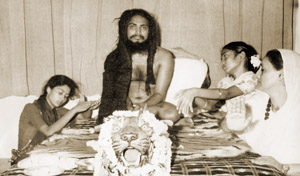Institutional Suppression
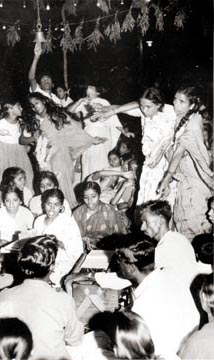 Bhava
and bhava samadhi are terms used in India that refer to spiritual trance.
In Christian tradition bhava is called charisms or pentecostal baptism of the Holy Spirit,
depending on the sect. There is spiritual trance among Sufis and shamans. The Dalai Lama has his oracle, as did the ancient Greeks. The Old Testament describes the trances of the prophets
(but if you are mainstream Christian, there has been no
prophesy since Jesus).
Bhava
and bhava samadhi are terms used in India that refer to spiritual trance.
In Christian tradition bhava is called charisms or pentecostal baptism of the Holy Spirit,
depending on the sect. There is spiritual trance among Sufis and shamans. The Dalai Lama has his oracle, as did the ancient Greeks. The Old Testament describes the trances of the prophets
(but if you are mainstream Christian, there has been no
prophesy since Jesus).
In each tradition, religious authorities have mistrusted direct experiences of the divine. Gnostics were condemned as heretics and their scriptures burned. Many Sufi mystics were horribly martyred.
When Muslims approached Mecca for their haj pilgrimage, they played instruments, sang, and danced joyfully. That custom has since been outlawed by the Saudis and their Wahhabist religious police. They detest and fear ecstatic music. Forbidding music or allowing only soothing music is form of control to prevent bhava. Lively spiritual song, not elevator music, evokes ecstatic states.
The most controversial "Gift of the Holy Spirit" is speaking in trance. Such speech is often a direct threat to institutional authority, and what is revealed through divine utterances may very well be secrets that those in authority want hidden from public scrutiny.
There is a sinister reason why spiritual trance phenomena are sometimes suppressed. Bhava samadhi, if it is real, is difficult if not impossible to control. Spiritual trance presents a threat to the status quo.
When people have direct experiences of the divine, when people speak out from their actual experiences of ecstasy, they challenge the authority of political and spiritual leaders. History is replete with evidence of institutional suppression of spiritual trance. Shivabalayogi said as much.
“[Jesus] taught meditation for everyone. People from all religions used to come to Christ. He taught meditation to all of them. After Christ the spiritual leaders did not allow that to happen. They stamped that out. Astral bodies, bhajans and meditation, all these same things happened even during the time of Christ. Christ started spreading this same type of meditation. He also started bhava samadhi and trance through astral bodies and bhajans. Not everyone liked what he was doing. Some people and the religious leaders did not like it and they were jealous of him. So they complained to the king about Jesus.”
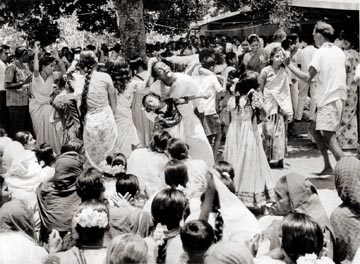
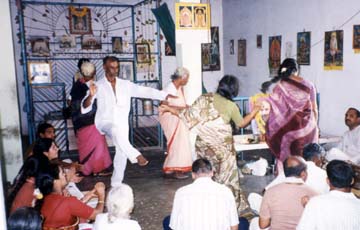
![]()
